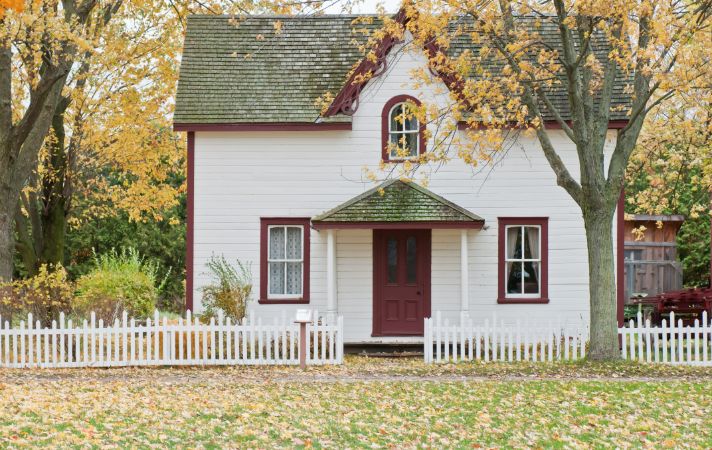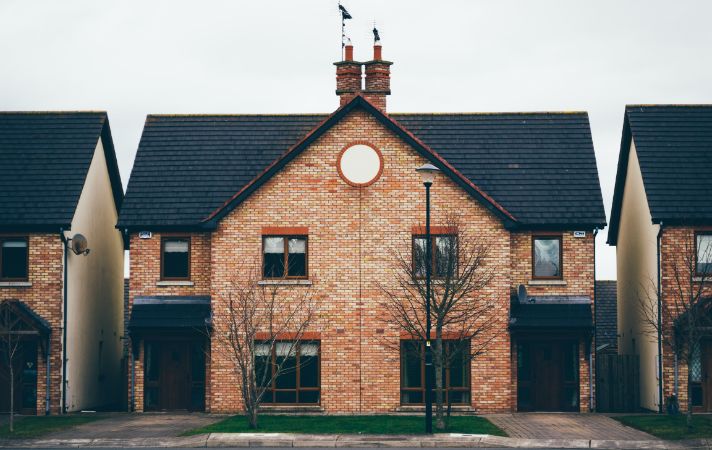Investing in the freehold should involve careful consideration – there are many things to understand as the process can be complicated if done without knowledge or professional help.
This blog post will act as a guide, walking you through exactly what buying a freehold entails, especially when it comes to residential property law.
We’ll discuss why purchasing a freehold can be beneficial and how it works, right through to preparing for sale negotiations with your seller.
Let’s get started!
What is a freehold?

A freehold is a legal term used to describe the most comprehensive form of property ownership, granting the owner full and permanent rights over both the land and any buildings or structures on it.
In essence, owning a freehold means possessing the property outright, without any time restrictions.
Unlike leasehold ownership, which is limited by a fixed term, freehold ownership endures indefinitely and can be passed down through generations.
This type of property ownership typically comes with greater control and fewer restrictions, allowing the owner to make decisions about land use, development, and maintenance without the need for landlord approval.
While freehold ownership is often associated with houses, it can also apply to other types of real estate, providing a sense of security and autonomy that many property buyers find appealing.
What is the difference between a freehold and a leasehold?
In the property realm you may have heard of the terms ‘freehold’ and ‘leasehold’. These two can be confusing but there is a clear difference between the two of them.
- Freehold – a type of ownership where the property and the land it sits on belong to the owner, giving them absolute control over it.
- Leasehold – a type of property that is owned by the freeholder (usually a landlord), and the leaseholder is granted the right to occupy the property for a specified period of time. During this lease period, the leaseholder must pay rent to the freeholder and follow any restrictions or conditions specified in the lease agreement.
Understanding the differences between these two is crucial when it comes to owning a property, as it affects the value, control, and long-term prospects of the property.
If you would like to know more about this please check out our blog which talks about freehold vs leasehold.
Why should you buy the freehold of your property?

Owning a leasehold property can be a cause of concern, as the land on which the property stands is not owned by the homeowner.
To address this concern, it might be worth considering buying the freehold of your property. With freehold ownership, you gain complete control over both the land and the property, which can give you peace of mind and enhance the value of your property.
Additionally, owning a freehold property ensures that you are not subject to leasehold costs or the rules and regulations that come with leasehold ownership.
Buying the freehold of your property could be a wise investment decision that offers long-term benefits and security.
How to buy the freehold of your property – Step by step
Now let’s take a deeper dive into the steps involved should you wish to buy the freehold of your property.
Check if you are eligible
The first step is to check if you’re actually eligible to buy the freehold of your property. There are different requirements you must meet depending on the property type you’re buying the freehold for e.g. a flat or a house.
Flat

The leaseholders in a building made up of flats can come to buy the freehold of the building if they meet certain criteria. This criteria includes:
- The building must have at least 2 flats.
- A minimum of two thirds of the flats must be owned by qualifying tenants. Qualifying tenants are leaseholders who have a lease that was in excess of 21 years when first granted. This will cover most leases of flats which are often 99 years or 125 years when first granted. Less common qualifying tenants also include:
- A brief lease that includes a perpetual renewal clause.
- A lease that can be terminated upon death, marriage, or an unspecified date, including clauses referred to as ‘Prince of Wales’ provisions.
- The extension of an extended lease under the Local Government Housing Act of 1989 after the initial term has ended.
- A lease in shared ownership where the tenant owns 100% of the share.
- A lease issued under the ‘right to buy’ or ‘right to acquire on rent-to-mortgage terms’ programs.
- If over 25% of the building’s internal floor space, excluding shared areas, is designated for non-residential use, such as retail or office spaces, the building will not meet the criteria. It’s important to note that garages and parking areas exclusively serving the building’s flats are considered residential in this context.
It is also worth mentioning that you can go down a more informal route and ask the freeholder directly if they would like to sell the freehold.
There is no obligation for them to agree to sell, but if they do then you can come to a negotiation with them. This could save time and money if it is done amicably.
House

When it comes to the purchase of the freehold of a house and whether you’re eligible or not there are a few factors to take into consideration.
- The house – this must be a structure that is reasonably regarded as a standalone house, separated vertically from any adjacent house. Whether the building has been subdivided into apartments doesn’t impact its eligibility, provided you possess the entire house’s lease. Some structures that include commercial spaces can also meet the criteria for being classified as a house under this definition. For instance, a property lease comprising a store with a residential unit above it may qualify for collective enfranchisement.
- The lease – has to be a lease originally for a term of more than 21 years or with a right to renew.
- The leaseholder – You must be the current leaseholder of the property and you need to have been the leaseholder for the past 2 years. Furthermore, in the event that you possess the entitlement to acquire the freehold, your personal representatives have the option to issue a notice for its purchase within a two-year period from the grant of probate or letters of administration following your death.
Find out the cost of the freehold
When it comes to determining the expense associated with acquiring the freehold, online calculators are available, but their reliability is limited due to the multitude of variables involved in estimating the cost.
Similar to property prices, freehold prices exhibit variability, with one notable trend being that shorter lease terms typically result in higher freehold costs.
Regarding the expenses involved in acquiring your portion of the freehold, you will be responsible for covering your flat’s share of:
- The purchase price for the freehold, also known as the premium.
- The fees for a valuation surveyor, crucial for obtaining an accurate freehold valuation and avoiding overpayment.
- Legal fees for the leaseholders.
- The legal and valuation fees incurred by the freeholder.
- Stamp duty land tax, which applies if the purchase price surpasses £125,000*.
*Prices right at the time of publishing.
Speak to a Solicitor – Brown Turner Ross

It is vital that you get expert help when it comes to buying the freehold of your property. This can be a daunting and complicated task to do by yourself, therefore it’s best to get the expert advice of a property solicitor.
Brown Turner Ross has been helping clients in property law for over 100 years and our team of property law professionals are on hand to assist in any way they can.
We’ve been dealing with freehold purchases cases for many years and we have come across nearly every scenario possible.
We’re confident our team has the knowledge and skills to help you get the outcome you desire when it comes to purchasing from a freeholder.
Work out finances
Once you’ve determined the cost of acquiring the freehold, the next step is to ensure that it aligns with your financial capacity.
Many mortgage providers are willing to extend your mortgage to facilitate the freehold purchase.
However, it’s advisable to consult a mortgage broker at an early stage to ascertain the feasibility of this option.
Get a professional valuation
This is when you actually need to employ the help of a professional who can give you not just an estimate, but a real valuation for your freehold.
You’ll need to contact a surveyor who is familiar with doing such valuations for the most accurate figure possible.
Make an offer via a solicitor
Your solicitor will initiate the process by issuing a “tenants’ notice” to the landlord, formally requesting the purchase of the freehold.
This notice must bear the signatures of all the leaseholders participating in the purchase. Subsequently, the landlord is obligated to respond with a “notice in reply” within two months.
It’s crucial to note that if the matter escalates to court and the landlord fails to respond within this two-month window, it may not work in their favour.
In their reply, the landlord should either agree to the sale or, if they disagree, provide reasons for their stance.
It’s important to be prepared, as the landlord may request a deposit equivalent to three times the property’s annual rent.
Once the landlord agrees to the sale, negotiations regarding the purchase price can commence.
Accuracy in the notices served to the landlord is of utmost importance. If any errors are present, you might need to wait another 12 months before re-submitting them.
Last case scenario – Apply to a First Tier Tribunal
If negotiations break down the leaseholder can still try to buy the freehold if they meet the criteria.
If this is the case they will need to go to the tribunal if no agreement can be made with the freeholder.
There is also free advice from the Leasehold Advisory Service (LAS) on the issue of buying the freehold.
Purchase your Property Freehold with Brown Turner Ross
We hope that gives you an insight into buying the freehold of a property.
As discussed, we have a team of legal professionals who deal with property law, including issues around buying freeholds.
If you are thinking of purchasing the freehold of your property and want a better understanding of the legal implications, reach out to us today.
